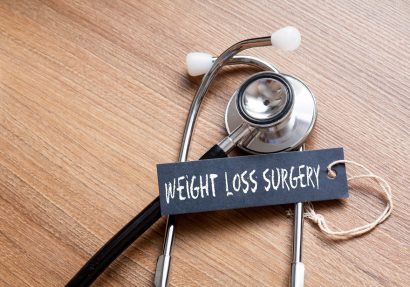Planning for Your Weight Loss Surgery: What to Know and Do
Written by Shawn M. Garber, MD Last modified on December 21, 2020
In this edition of Ask the Expert, Dr. Shawn M. Garber answers some frequently asked questions from readers who want to know what they can and should do before weight loss surgery to maximize their chances of success.
Q. Should I lose weight before my weight loss surgery? 
A. This is a controversial question. Some insurance companies do require three-to-six months of a preoperative, medically supervised weight loss program, and some require weight loss prior to the procedure. The American Society for Metabolic & Bariatric Surgery put out a consensus statement on this issue and concluded that there are no studies to support preoperative medically supervised weight loss prior to surgery and that such a requirement may be harmful to patients. Your surgeon can likely recommend various approaches to weight loss if required before your procedure.
Q. What types of medical exams will I need before weight loss surgery?
A. There are many types of screening tests that are recommended before you are cleared or deemed healthy enough to undergo weight loss surgery. Your surgeon will order tests to see if you have any obesity-related diseases such as diabetes, heart disease, high blood pressure, lung disease or sleep apnea. The presence of any of these conditions does not necessarily rule out surgery; in fact, they might validate and reinforce your decision to have weight loss surgery. Expect blood tests and liver function tests, in addition to an electrocardiogram to measure the electrical activity of your heart, among other tests. You may also be asked to undergo a psychological and nutritional evaluation to make sure you are ready for the procedure and the lifestyle changes it requires.
Q. Why do I have to quit smoking before gastric bypass?
A. Simply stated, you are undergoing weight loss surgery to improve your health and smoking is one of the worst things you can do for your health. Not only does it harm every organ in your body, but it can also compromise the effects of your surgery. It increases your risk of ulcers and blood clots after gastric bypass, not to mention all of the diseases associated with obesity that likely play a role in your decision to undergo the surgery. Quit six weeks before your surgery to lower these risks. After six weeks, the worst part of the withdrawal is over. Stay the course. There are more ways to help you quit today than ever before. Ask your surgeon for tips and advice and good luck!
Q. How long must I take off from work to recover from surgery?
A. The answer to this question depends on many factors including the specific type of surgery you have, how quickly you begin to recover and the type of job you have. In general, most people return to work in one or two weeks. You may need a more flexible schedule in the beginning. Your weight loss surgeon will monitor your recovery and help guide these important decisions.
Q. What should I tell my colleagues about my weight loss surgery?
A. It’s no one’s business how you lost weight or what you did on your time off. What and when you tell your colleagues, if anything, is up to you. You may want to confide in a coworker who you trust so you feel less alone as you start this journey and navigate new situations around food and eating.


